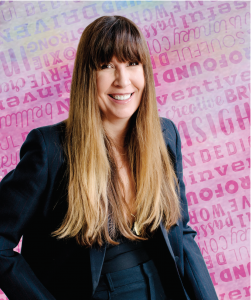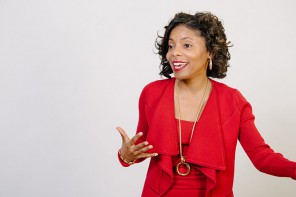STANDING STRONG
BLACK WOMEN UNITE TO OVERCOME ABUSENEARLY 20 PERCENT OF WOMEN are victims of sexual violence in their lifetimes.
But those rates rise precipitously among women of color. According to the non profit Black Women’s Blueprint, 40 to 60 percent of black women “report coercive contact of a sexual nature by age 18.”
Mobilizing marginalized and minority groups to break the pattern of sexual exploitation and oppression of women is the goal of National Black Woman Heal Day April 1, when organizers hope to inspire public gatherings across the country.
Madison’s daylong event takes place at the Capitol Rotunda and includes live performances, a hands-on art project guided by Chicago-based painter Tatiana Lord and a keynote speech at 4:30 p.m. by state Sen. Lena Taylor.
“The event, conceived by Lilada Gee, a Madison advocate for black women, is meant to increase awareness of the sexual assault incidence rate, improve prevention strategies and inspire individual survivors to go on a healing journey. Gee, who founded Lilada’s Livingroom, a home for teen mothers and a resource organization for black sexual assault victims, is hoping to spark a nationwide movement through her “healing collective.” And she’s encouraging every woman in the region who has experienced such trauma to attend the Madison event.
“If you do not make the conscious choice and effort to heal, you will repeat the cycle by being unable to protect and/ or support your own children from being victimized in the future,” says Gee, who is a sexual assault survivor. She is also adamant that black women in particular need to liberate themselves from the false identities they have “put on” to mask the reality of the abuse.
“Silence does not negate the pain; it only leaves far too many others at risk,” she says, especially when the abuse occurs at the hands of a relative or a close friend. And, what is not being said is the catalyst for the current movement, which Gee hopes will empower women to break these patterns of “nonconsensual, sexual servitude.”
In 2009, the Bureau of Justice Statistics reported that “for every black woman that reports a rape, at least 15 do not.” Gee says she has seen similar statistics through her advocacy work in Southwestern Wisconsin. “People expect you to forgive, forget and move on when it happens in the family,” she says.
Gee thinks we need to reflect on what it means over time for the community at large to have children being raised through trauma and without safe, accessible networks in place for those who do choose to speak out. “The day has come to declare the abuse and start healing.



